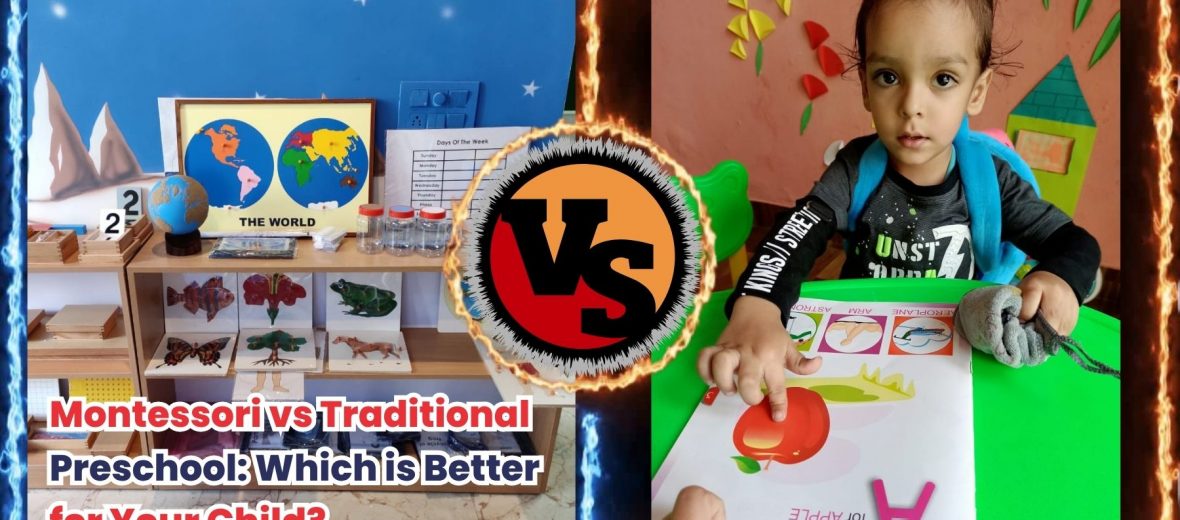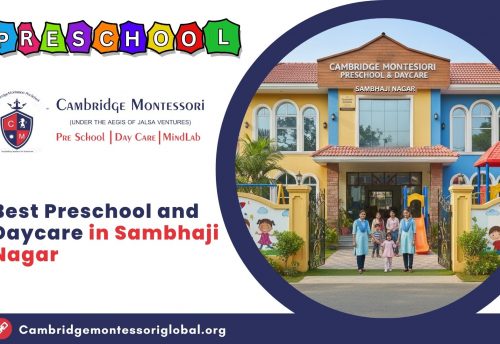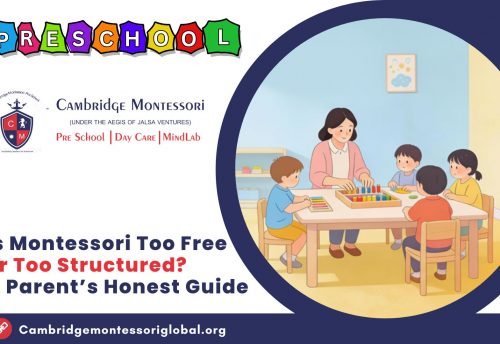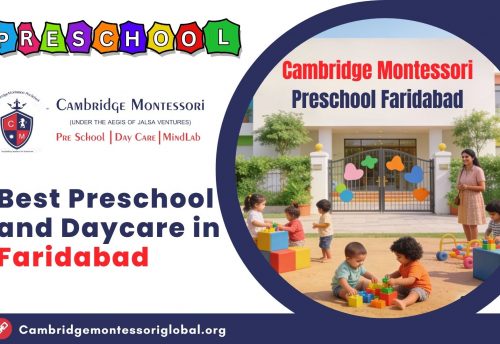
Montessori vs Traditional Preschool: Which is Better for Your Child?
The first school you choose for your child is the first step toward shaping their future.
Lifelong learning and development begin in the early years of a child. When deciding on the right preschool, one of the most important decisions you will make as a parent is the decision itself. With so many options available, the debate often comes down to Montessori vs Traditional Preschool. Each of these approaches has its advantages, but which one works better for your child? Let us consider the differences, the advantages, and see how you can make the right choice for your little one. You know your child well, so by the end of the blog, you will have a clear understanding of which teaching method you should go for.
What is a Montessori Preschool?
Montessori learning involves letting children develop at their own pace. The Montessori approach, which was invented by Dr Maria Montessori, is quite unlike conventional classrooms.
Children learn by practicing and exploring, instead of teachers dictating to them.
Here’s what makes a Montessori preschool unique:
- Children are free to move and pick activities that they are interested in.
- Teachers are mentors and not instructors.
- Classrooms are split into learning corners like reading, math, and sensory play.
- Mixed ages allow younger children to be guided by the older ones and develop empathy.
- Independence, focus, and problem-solving skills are naturally developed.
If you’ve ever searched “Montessori preschool near me,” you’re probably looking for this kind of nurturing, child-led environment.
What is a Traditional Preschool?
Traditional preschools focus on structure, routine, and academic preparation.
The traditional preschools are more teacher-centred, whereas Montessori is not. It usually focuses on getting children ready to be in formal schools through training them in early academic skills.
Here’s what you’ll find in a traditional preschool:
- Permanent day schedules in reading, writing, and numbers.
- Teachers educate a mass of children of the same age group.
- Activities consist of worksheets, recitations, and organised play.
- Evaluations are conducted using grades, tests, and formal reports.
- Classroom management and discipline are very important.
Traditional preschools are widely available, from nursery schools in India to daycare centres offering structured programs.
Key Differences Between Montessori and Traditional
Preschool
Before you decide, let’s look at the major differences.
Learning Approach
- Montessori: Focuses on child-led, independent exploration.
- Traditional: Teacher-led lessons with less flexibility.
Curriculum and Activities
- Montessori: Practical life skills, sensory-based activities, and real-world learning.
- Traditional: Reading, writing, numbers, and group activities.
Teacher’s Role
- Montessori: Teachers guide, observe, and support.
- Traditional: Teachers instruct, manage, and test knowledge.
Assessment
- Montessori: Progress tracked through observation and skill
- Traditional: Progress measured by tests and grades
Class Environment
- Montessori: Open spaces, self-directed work, and mixed age groups.
- Traditional: Desks, structured schedules, and same-age groups.
When you compare Montessori vs traditional Preschool, the choice really comes down to your style of learning that suits your child.
Benefits of Montessori Education for Your Child
Montessori is not only about learning, but it is also about creating life skills.
The following are some of the reasons why parents choose Montessori for their kids’ future:
- Encourage Independence: Children learn daily tasks on their own, building confidence.
- Improves Imagination: Open-ended exercises encourage imagination.
- Enhances Social Skills: Mixed-age groups build trust, compassion, and collaboration.
- Focus on Practical Life Skills: Prepares the children to face real-life situations.
- Child-Centred Growth: Every child’s unique learning style is respected.
Many parents are looking for the Best Montessori Preschool in India. Choose us because we nurture not only academics but also emotional and social growth.
Which is Better for Your Child – Montessori or Traditional?
The selection depends on your child’s needs and your parenting goals.
- Montessori can be the most suitable one if you wish your child to develop independence, creativity, and confidence.
- A traditional preschool may be better if you want a more school-based, academic-focused atmosphere.
But increasingly, parents are turning to Montessori as it offers them a middle ground, that is, a balance between academic and necessary life skills.
Why Cambridge Montessori Global?
At Cambridge Montessori, we provide a good beginning to a bright future for your child.
Here are some of the reasons why thousands of parents trust us:
- We combine Montessori values and global educational practice.
- A secure, supportive, and challenging environment for all children.
- A mix of daycare, preschool, and activity-based learning in a single building.
We have a network of schools in India, and you can easily find us if you search for the best preschool & Daycare near me. Choosing Cambridge Montessori preschool means choosing a balanced, child-centred education that prepares your child for life, not just school.
Conclusion
In comparing Montessori and Traditional Preschool, they both hold some value. But if you want your child to grow with independence, confidence, and creativity, Montessori has unmatched benefits.
At Cambridge Montessori Global, we ensure that each child receives an excellent foundation for lifetime achievements. Preschool is not only the place where your child starts being an inquisitive, self-assured, and competent learner, but also a place where your child starts his/her journey of discovery.
Frequently Asked Questions
Q1. How is Montessori different from traditional preschools?
Ans. Montessori considers hands-on learning, independence, and practical skills, whereas traditional schools consider academics, discipline, and testing.
Q2. Is Montessori suitable for all children?
Ans. Yes, Montessori is flexible to all the learning styles and paces of children, thus it can apply to children with various personalities and abilities.
Q3. At what age can I enroll my child in Montessori?
Ans. The majority of children begin at the age of 2-3. Some centres provide toddler programs to the younger children.
Q4. Why should I choose Cambridge Montessori over other preschools?
Ans. We use the time-tested Montessori approach with world-teaching and provide a supportive environment where children can develop academically, socially, and in confidence.



